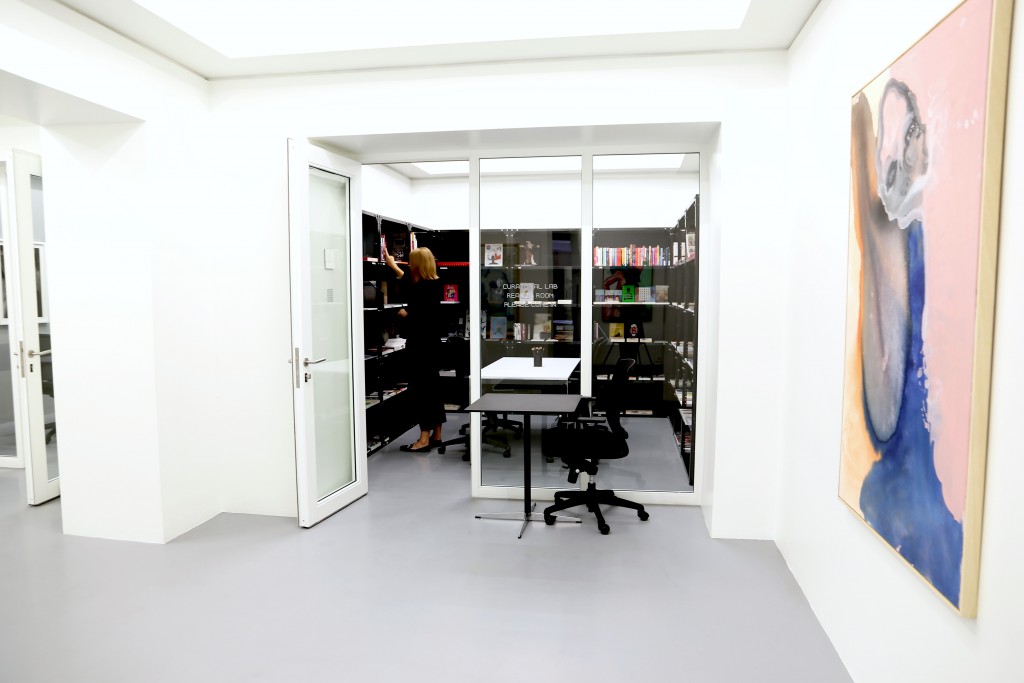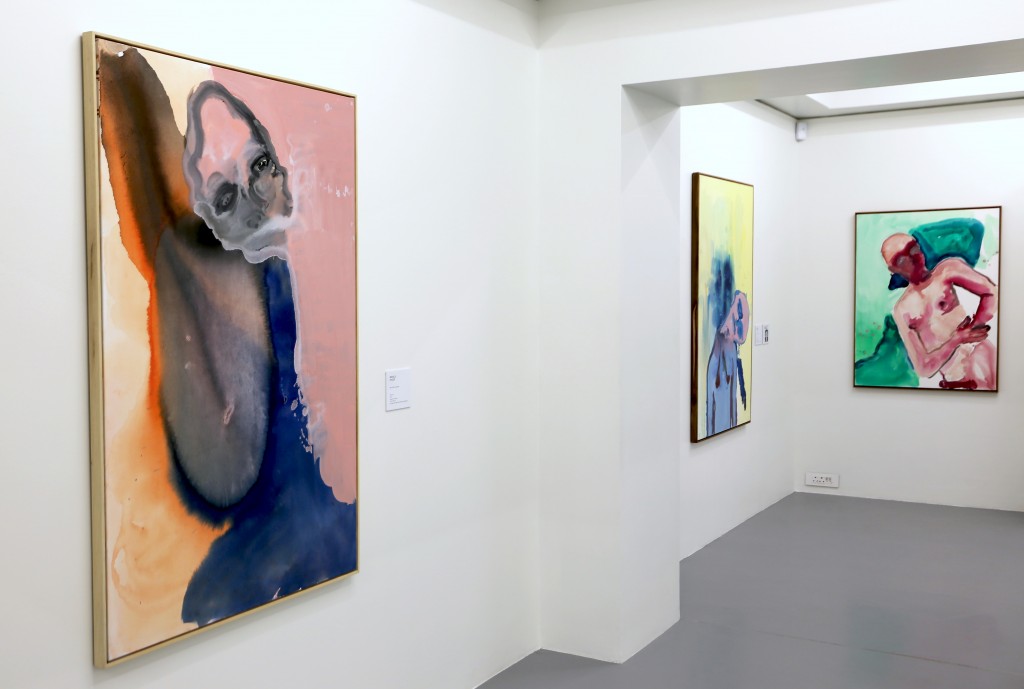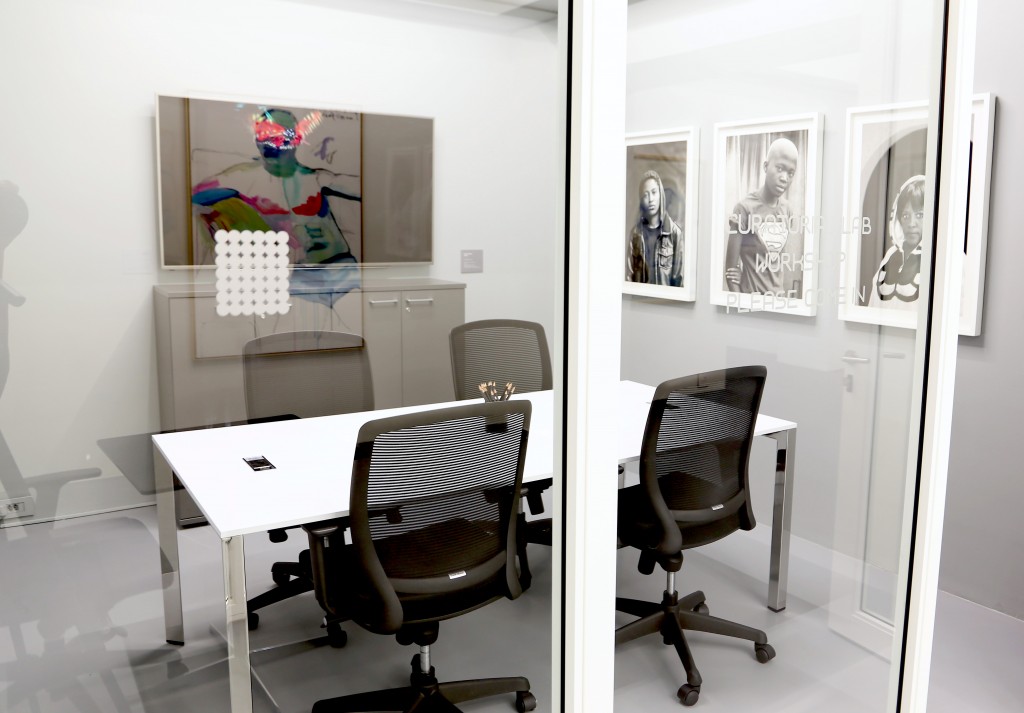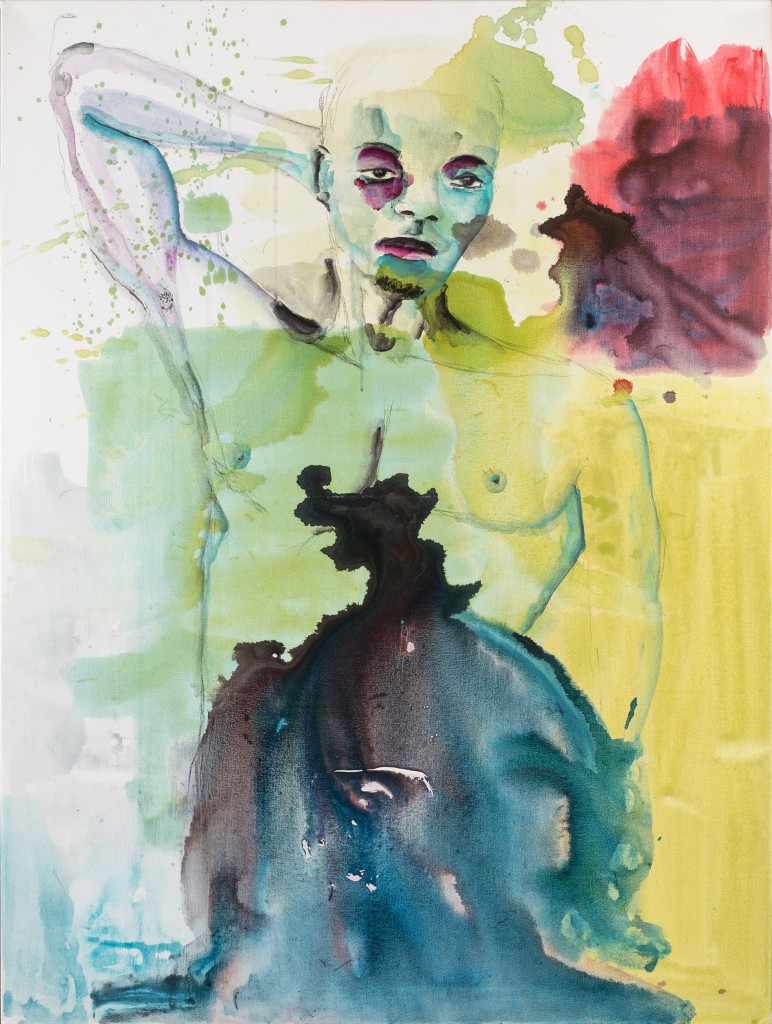Zeitz MOCAA’s Curatorial Lab Officially Opens With Emphasis On The Preservation Of Human Rights

On 11 April 2018, the Curatorial Lab at Zeitz Museum of Contemporary Art Africa (Zeitz MOCAA) was officially opened by Kees van Baar, Human Rights Ambassador of the Kingdom of the Netherlands. A new exhibition by Banele Khoza was on view to celebrate the opening of the space.
Situated on Level 1 at Zeitz MOCAA, the Curatorial Lab is a multi-disciplinary space for experimental curatorial practice and research that explores new curatorial methodologies, subversive curatorial approaches, non-prescriptive practices, and under-represented topics and issues. The Curatorial Lab initiates lectures, forums, panel discussions, screenings, performances and houses a library, a workshop/viewing room and four galleries.
The current focus of the Curatorial Lab is LGBTQI+ issues and rights. It is a dedicated space in the museum to guarantee that the voices and experiences of this community are heard. This focus on LGBTQI+ issues and rights is generously supported by the Consulate General of the Kingdom of the Netherlands.
The South African Constitution in theory protects the rights of all, including an individual’s right to sexual choices. Section 9.3 and 9.4 of the Constitution of South Africa guarantees equality before the law and freedom from discrimination for its people. The Equality Right is listed first in the Bill of Rights: “The state may not, and no person may, unfairly discriminate directly or indirectly against anyone on one or more grounds, including race, gender, sex, pregnancy, marital status, ethnic or social origin, colour, sexual orientation, age, disability, religion, conscience, belief, culture, language and birth.” But sadly, in practice, we’ve seen gross violations of these human rights towards the LGBTQI+ community.
It is fundamental that we create awareness for the position and rights of the LGBTQI+ community on the African continent, hence this project being a critical undertaking in the process of ensuring the visibility and representation of the community in South Africa through arts and culture. The Curatorial Lab is a safe space where we can look, read, hear and learn. A place where our eyes can be opened and where our responsibilities to our fellow humans can be respected.
In only a few months, the Curatorial Lab has already marked its place by exhibiting the work of artist/activist Zanele Muholi; hosting numerous guided tours focusing on LGBTQI+ themes; facilitating the inclusion of LGBTQI+ artists and themes in the museum’s permanent exhibition galleries; hosting commemorative performances on International Human Rights Day, which also marked the end of 16-Days of Activism Against Gender-Based Violence; hosting an educational lecture for South African National Human Rights Day on Constitutional Law and protection against homophobic abuse, violence and stigma; arranging debates and facilitating workshops with journalists from across the African continent to encourage fairer and more representative coverage of LGBTQI+ narratives within the media; opened a workshop/viewing room for LGBTQI+ themed film and video; and started a young, but growing collection of publications for a library that is open to the public.
The LGBTQI+ Banele Khoza exhibition forms part of the Curatorial Lab’s ongoing partnership with the Consulate General of the Kingdom of the Netherlands, which investigates the representation of the LGBTQI+ community in an attempt to preserve human rights based on the South African constitution and within the context of homophobia and the current oppression of LGBTQI+ rights in South Africa. This project strives to promote intercultural understanding of a community who have been excluded from society’s predominantly hetero-normative culture and discourse, promotes education through the arts and develops critical thinking about gender and sexuality.
Banele Khoza’s abstract and figurative paintings depict colourful portraits of the male nude represented through obscure ghostly figures in palettes of mostly pink and blue. The pigments are combined and blurred together in fervent brushstrokes that appear to be applied with acute sensitivity and without a sense of inhibition while empty spaces and pencil sketch marks reveal their compositional form.
This presentation of Khoza’s work has been curated by Sakhisizwe Gcina, AKO Foundation Assistant Curator of Special Projects, Curatorial Lab, Zeitz MOCAA, who says: “Romantic and dream-like, Banele Khoza’s portraits allude to fantasies of sensual desire contrasted with a feeling of vulnerability and incompleteness. Is this fanciful exploration an attempt to mask the everyday reality of loneliness?”
“Khoza’s paintings compel us to consider the subconscious wishes of the solitary figures and their imaginative foray into homo-erotic relationships as they are formed and destroyed. There is an embrace of sexual liberation and disruption of traditional gender binary constructs through nuanced effeminate depictions.”
Technology and the digital information age came with a promise of forming intimate bonds between communities and individuals. However, it also offered the convenience of superficial relationships through fleeting connections made in cyberspace. LGBTQI+ Banele Khoza interrogates how Khoza’s visual language examines the suppression of complex and diverse expressions of masculinity and men trying to find love from each other in today’s filtered virtual world.
Kees van Baar, Human Rights Ambassador of the Kingdom of the Netherlands shared his enthusiasm. “It was uplifting to meet with South Africans to see how together we can promote human rights worldwide.”
“The LGBTQI+ Banele Khoza exhibition is in line with Zeitz MOCAA’s commitment to intercultural understanding together with the Consulate General of the Kingdom of the Netherlands’ protection of human rights. The goal of the exhibition is to establish dialogue and respect for human rights––regardless of gender, creed or sexual orientation––to create a safe environment for the discussion around similarities and differences that create a multi-cultural and diverse society,” said Mark Coetzee, Executive Director and Chief Curator, Zeitz MOCAA. “It is important for the museum to support young artists from the LGBTQI+ community through the Curatorial Lab as it is an opportunity to exhibit artists or issues that are often overlooked.”
Exhibition name: LGBTQI+ Banele Khoza
Curator: Sakhisizwe Gcina, AKO Foundation Assistant Curator of Special Projects, Curatorial Lab, Zeitz MOCAA
Run dates: Thursday 12 April 2018 – Sunday 16 September 2018
Venue: Curatorial Lab, Level 1, Zeitz MOCAA









